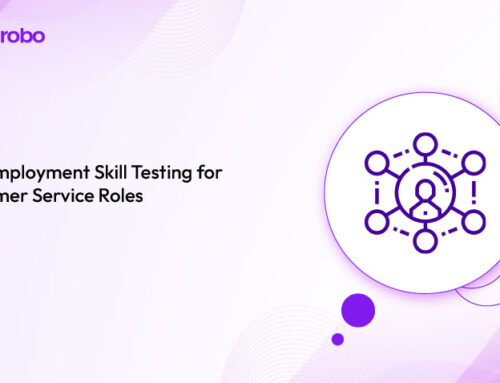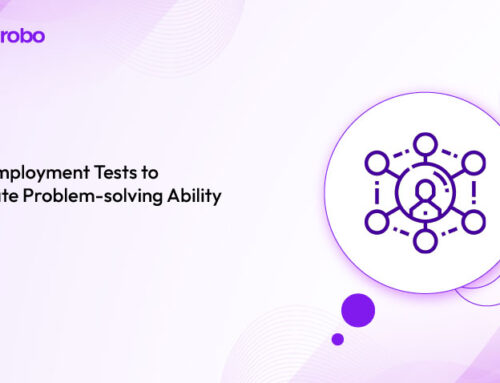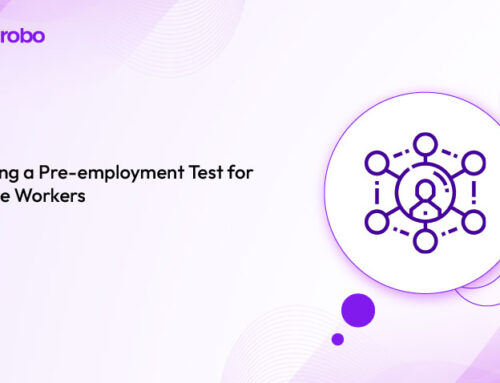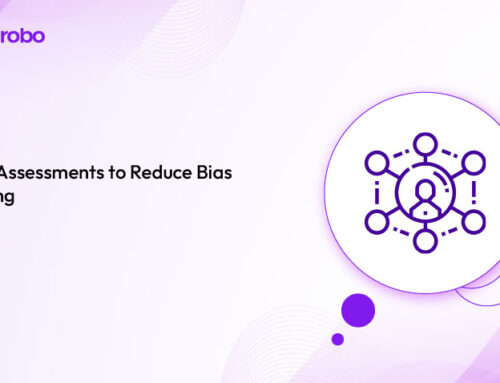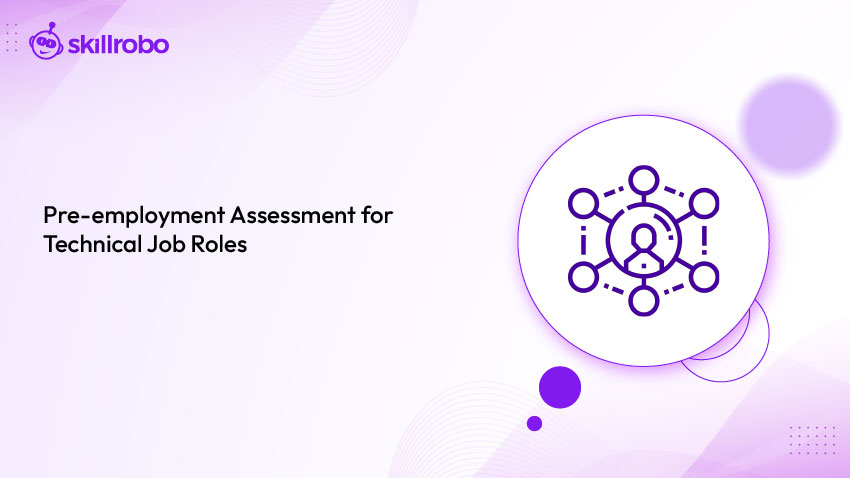
Key Takeaways
- Technical assessments verify knowledge like system design, ensuring hires meet role demands from day one.
- Objective MCQ and descriptive tests boost hiring accuracy, filtering talent beyond resumes for tech roles.
- Automated platforms with AI-driven questions speed recruitment, pinpointing top performers for technical positions.
- Fair assessments eliminate bias, creating equitable evaluations that attract diverse applicants to tech fields.
Hiring Tech Talent Is No Joke
Finding a top-notch developer, analyst, or engineer is like spotting a rare gem in a quarry—tough but worth the effort. Resumes brim with credentials, but do they prove someone understands neural networks or can explain a circuit’s logic? Interviews show soft skills, not deep technical know-how. Pre-employment assessments save the day, testing critical knowledge—think algorithm concepts or database principles—through MCQs and descriptive questions.
A 2023 survey found that 72% of tech recruiters rely on skills tests to reduce noise. Here’s how to craft assessments that land tech talent who deliver, keeping your projects on track and budgets intact.
Pinpoint the Skills That Count
Tech roles are unique beasts—each demands specific expertise. A data scientist needs stats savvy; an engineer needs structural know-how. Locking in these skills ensures your test hits the mark, avoiding hires who falter when the stakes are high. A vague test might pass someone who’s all talk, wasting everyone’s time. Here’s how to focus on what drives tech success.
1. Target Role-Specific Knowledge
Get specific—what’s the job’s core? Probability for AI pros, fluid mechanics for civil engineers. Ask team leads about key tasks, like interpreting data models or explaining system specs. MCQ and descriptive tests should probe these areas, ensuring hires are ready to contribute without missing a beat.
2. Test Problem-Solving Smarts
Tech lives on quick thinking. An analyst decoding odd metrics or an IT pro explaining a network fix needs sharp logic. Use descriptive questions—like analyzing a system error—to spot who thrives in chaos. These minds keep projects steady when surprises hit problem-solving skills.
3. Check Tool Familiarity
Knowing tools—Pandas for analysts, Revit for architects—sets hires apart. A newbie fumbling software slows teams down. MCQs on tool functions, like data filtering or drafting commands, confirm expertise, ensure hires jump in fast, and no retraining is needed.
4. Probe Technical Theory
Practical know-how needs roots—think data structures for analysts or electromagnetism for electrical pros. MCQs on concepts, like sorting methods or signal loss, test depth. This prep hires to adapt as tech evolves, staying solid in fast-moving roles.
5. Assess Clarity and Speed
Tech demands quick answers, like explaining a bug to stakeholders under a deadline. Descriptive tasks, like summarizing a design flaw in 10 minutes, show who communicates precisely on the clock. These hires shine, keeping teams aligned and projects moving.
Craft Tests That Reveal True Skill
A great test feels like a job preview—think explaining a database schema, not random trivia. Weak ones are confused with unclear MCQs or off-base essays, hiding talent. For a DevOps role, test configuration knowledge, not fluff. Here’s how to build assessments that uncover tech stars.
1. Mirror Real-World Demands
Frame questions around actual tasks—like defining API logic for devs or troubleshooting a relay for engineers. An analytics test might ask candidates to describe data cleaning steps. MCQ and descriptive formats show who grasps the work, proving they’re ready for the grind of technical expertise.
2. Blend MCQ and Descriptive Questions
Mix formats for depth—MCQs for facts (e.g., cloud security protocols), descriptive for reasoning (e.g., justify a tech choice). A security role might test threat knowledge and mitigation plans. This combo catches technical understanding and thought process, painting a full picture.
3. Write Crystal-Clear Questions
Vague prompts tank results. “What’s wrong here?” flops; “Explain this query’s error” nails it. Clear MCQs and essay questions let candidates show their stuff, not guess intent. A muddy question once hid a great hire—precision keeps the focus on skill.
4. Scale Difficulty Thoughtfully
Start with basics—like network terminology—then hit advanced topics, like distributed system trade-offs for seniors. Adaptive MCQs adjust to answers, balancing fairness for juniors and rigor for pros. This catches raw potential and expertise without overwhelming or underwhelming.
Use Tech to Make Hiring Easier
Smart tools turn assessments into a breeze. AI shapes precise questions, secure systems ensure trust, and analytics pick winners fast. A 2024 report found that 65% of firms using tech tests hire more diverse teams. MCQ and descriptive questions on Skillrobo streamline tech hires with ease.
1. Automate with AI Questions
AI builds role-specific MCQs—like virtualization concepts for IT pros—or descriptive tasks, like explaining a design choice. These questions hit job needs, saving time and skipping generic fluff. Tailored tests ensure you’re probing what drives performance, boosting higher quality.
2. Secure with Proctoring
Remote tests need guards. Proctoring spots cheats—like tab-switching—keeping results honest. For an analyst role, this confirms data interpretation skills are legit. Secure setups let candidates test anywhere, giving you confidence in every answer, no sneaky shortcuts.
3. Get Instant Analytics
Live data ranks candidates—showing who aces system design MCQs or lags in descriptive logic. Instant insights slash review time, especially with big pools. Fast analytics lets you focus on top talent, speeding hires for tight deadlines or urgent roles.
Prioritize Fairness at Every Step
Fair tests are a must—bias or bad design shuts out diverse talent, killing innovation. Objective MCQs and descriptive questions focus on skills, like protocol knowledge, not demographics. Here’s how to keep evaluations open and equal for all.
1. Eliminate Bias Upfront
Avoid questions favoring niche backgrounds—like rare tools unless they’re essential. Neutral MCQs on data flows or descriptive tasks on system fixes ensure everyone’s got a shot. A biased test once lost diverse hires—fairness pulls in talent from all sides eliminating bias.
2. Score Consistently
Use one standard—like clarity in descriptive answers—for all. Uniform metrics stop favoritism, so a self-taught analyst shines as bright as a degreed one. This shows candidates they’re judged on skill, not status, building trust across the board.
3. Be Transparent About Rules
Clear guides—like “answer 5 MCQs in 15 minutes”—cut nerves. Explaining scoring upfront feels honest, not tricky. Transparency hooks diverse applicants, showing they’re valued, and boosts your rep as a fair employer streamlining recruitment.
Tweak Tests with Data
Tests need tune-ups—are scorers thriving? Are candidates quitting? Data spots weak spots, keeping assessments fresh as tech shifts. This ensures your hiring stays on point, landing talent who stick and succeed.
1. Track On-the-Job Success
Do top testers deliver? Compare MCQ scores to results—like analysts nailing forecasts. If they align, your test’s solid; if not, adjust questions. A gap once led to weak hires—data keeps your picks strong candidate assessment tools.
2. Monitor Who Finishes
Low completion flags issues—maybe MCQs are too dense. High rates mean ease. Tweak, like simplifying descriptive tasks for juniors, to keep candidates in. A rough test once lost great applicants—data smooths the path.
3. Update for Tech Shifts
Tech moves fast—AI analytics rise, old methods fade. Add MCQs on new frameworks or descriptive tasks on cloud trade-offs. Stale tests miss modern needs, like a firm stuck on outdated protocols. Updates keep hires cutting-edge.
Dodge Common Traps
Even great tests can stumble. Overloaded MCQs, skipping team skills, or glitchy platforms skew results. A firm once hired a tech whiz who clashed hard—fit matters. Testing for collaboration avoids hires who know systems but tank morale identifying Dark Triad traits.
1. Avoid Overloaded MCQs
Relying heavily on multiple-choice questions often overlooks a candidate’s real-world problem-solving ability. Instead of testing memorization, focus on scenarios that reflect daily job tasks. This approach helps evaluate how candidates think, adapt, and apply knowledge practically in complex situations.
2. Test for Team Compatibility
Hiring someone with technical brilliance but poor interpersonal skills can harm team morale. Incorporate assessments for emotional intelligence, communication, and teamwork. These insights reveal how well a candidate collaborates and contributes to a healthy workplace culture beyond individual performance.
3. Use Reliable Platforms
A glitchy testing platform can frustrate candidates, damage your employer brand, and misrepresent actual skills. Choose tools that are stable, user-friendly, and offer customizable question formats. A smooth experience ensures fair evaluations and reflects well on your organization’s professionalism.
Conclusion
Pre-employment assessments transform technical hiring, proving knowledge, speeding decisions, and welcoming diverse talent with MCQ and descriptive tests. They slice through resume fluff, spotlighting analysts, engineers, and IT pros who grasp complex concepts and communicate clearly, ready to tackle challenges and grow with your vision.
From crafting role-specific questions to refining data, Skillrobo builds teams that drive innovation and results. With platforms streamlining every step, you’re shaping a tech workforce that doesn’t just fill roles—it redefines success. Ready to hire tech talent who truly shines? Take the first step and sign up today to build your dream team.



